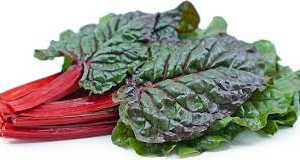-
onions ( ibitunguru )
Fr 1.200
An onion is a plant that grows as a bulb underground and can be harvested and eaten. Onions are bulbs, like tulips or daffodils — most of the plant is hidden in the soil, with roots stretching down and stalks that grow upward and eventually bloom with small flowers. Onions are typically harvested in the fall, and they come in many shapes, sizes, and colors, all of which can be eaten. The Latin root of onion, unionem, was used in colloquial Roman to mean both “a type of onion” and “a pearl.”
Onions are nutrient-dense, meaning they’re low in calories but high in vitamins, fiber, and minerals.
One medium onion (110 grams [g]) contains:
Calories: 44
Protein: 1.2 g
Carbs: 10.3 g
Sugar: 4.7 g
Fiber: 1.9 g
Fat: 0.1 g
Potassium: 3.4% of Daily Value (DV)
Vitamin C: 9% of the DV
Onions are high in vitamin C, which may help regulate your immune health, collagen production, and iron absorption.
It’s also a powerful antioxidant that could help protect your cells from unstable, damaging molecules called free radicals.
Onions are rich in B vitamins, including folate and vitamin B6. These play key roles in metabolism, red blood cell production, and nerve function.
Lastly, onions are a good source of potassium, a mineral that may help with:
cellular function
fluid balance
nerve transmission
kidney function
muscle contraction -
mandarines ( mandarene )
Fr 2.300
The term “mandarin” refers to Citrus reticulate, sometimes called “kid-glove oranges,” and is characterized by deep orange skin with easy peeling and separation of sections.
Mandarin is the group name given to several classes of small oranges that includes mandarins, satsumas, clementines and tangerines which all belong to the species Citrus reticulata and the satsuma mandarin Citrus unshiu.
Usage and potential
Food
A good source of vitamins and minerals, the fruit is often consumed fresh. It can also be canned in syrup or made into juice. The fruit and rind are used to flavour cakes, pastries, gelatines, puddings, chewing gum, bakery products, and tea. Mandarin oil is used to flavour carbonated beverages.
Medicine
Essential oil obtained by cold compression of the peel is used in aromatherapy and traditional medicine for the treatment of insomnia, as well as skin and digestive problems. Different varieties of the fruit and parts of the plant, such as the seeds, roots, leaves and flowers, are used in Chinese, Malay and Indian traditional medicine. Petitgrain mandarin oil is obtained from distilling leaves, twigs and unripe fruits of the plant. The fruit, being high in Vitamin C, is considered good for the immune system. It is supposed to help combat phlegm and keep colds at bay. Some varieties of the fruit contain a decongestant called synephrine.
SUMMARY
Mandarins are small, easy-to-peel members of the Citrus genus. They are a separate species from oranges. There are many kinds and hybrids of mandarins, including tangerines and clementines.
Nutritional profile
Mandarins boast an impressive nutritional profile.
One medium mandarin (88 grams) packs the following nutrients:
Calories: 47
Carbs: 12 grams
Protein: 0.7 grams
Fat: 0.3 grams
Fiber: 2 grams
Vitamin C: 26% of the Daily Value (DV)
Magnesium: 2.5% of the DV
Potassium: 3% of the DV
Copper: 4% of the DV
Iron: nearly 1% of the DV
This potent little fruit delivers over a quarter of the DV for vitamin C, which is important for skin health, wound healing, and proper immune function
Benefits
Like most citrus fruits, mandarins are loaded with vitamins, fiber, and beneficial plant compounds. Consuming them regularly may provide many health benefits.
What’s more, they’re easy to pack as a snack, toss into smoothies, or peel into salads or gelatin desserts.
Rich in antioxidants
Mandarins are rich in health-boosting plant compounds like flavonoids.
Flavonoids are readily found in foods. They’re a type of antioxidant that helps defend your body against an imbalance of free radicals, which could otherwise lead to oxidation. Oxidation can promote aging and the onset of diseases like cancer and heart disease.
Another way that flavonoids may help protect against cancer is by suppressing genes that support cancer growth and inactivating cancer-promoting compounds
Powers your immune system
Given their high content of vitamin C, mandarins may strengthen your immune system. -
jackfruit ( ifenesi )
Fr 5.800
jackfruit, (Artocarpus heterophyllus), evergreen tree (family Moraceae) native to tropical Asia and widely grown throughout the wetland tropics for its large fruits and durable wood. The greenish unripe fruit is cooked as a vegetable, and the brown ripened fruit is eaten fresh for the sweetly acid but insipid pulp surrounding the seeds. The seeds are cooked and eaten locally. Jackfruit is considered a staple food crop in Bangladesh and other areas in South and Southeast Asia. Canned or processed jackfruit has gained popularity as a meat substitute in some places.
Fruit as a meat substitute? Yep, when it’s jackfruit. This massive tree fruit flips its flavor between sweet and savory, depending on how ripe it is.
So, is jackfruit good for you? Yes! Jackfruit benefits include being heart-healthy, fighting inflammation and promoting wound healing.
What is jackfruit?
The scientific name for jackfruit is Artocarpus heterophyllus. Jackfruit is a tropical tree fruit grown in Asia, Africa and South America. It belongs to the same plant family as figs and mulberries.
Under its thick, bumpy green rind is a stringy yellow flesh that you can eat raw or cooked in a variety of dishes. (Its seeds are also edible.)
Jackfruit is the largest tree-borne fruit in the world, weighing up to 40 pounds or more. Luckily, you don’t need to throw this massive fruit into your shopping cart. Some health food stores carry peeled and cut jackfruit portions in pouches or cans, ready to cook or eat.
But for some people, jackfruit isn’t safe to eat.
If you have a latex or birch pollen allergy, avoid jackfruit, Both of these allergies can have a cross-reaction with jackfruit.
Jackfruit also has a lot of potassium, which can be harmful to people who have chronic kidney disease (CKD) or acute kidney failure. People with these conditions can develop hyperkalemia if they eat high amounts of potassium. Hyperkalemia is a buildup of potassium in the blood that can cause weakness, paralysis and heart attack.
Is jackfruit healthy?
Jackfruit also contains vitamins, minerals and phytochemicals that have health benefits. It’s a good source of:
• Vitamin C.
• Pyridoxine (vitamin B6).
• Niacin (vitamin B3).
• Riboflavin (vitamin B2).
• Folic acid (vitamin B9).
• Calcium.
• Magnesium.
• Potassium.
Phosphorus. Jackfruit Is Packed With Nutrients, it has an impressive nutrition profile.
It contains a moderate amount of calories, providing 155 in a one-cup (165-gram) serving. Approximately 92% of the calories come from carbs, while the rest come from protein and a small amount of fat.
Furthermore, jackfruit contains some of almost every vitamin and mineral that you need, as well as a decent amount of fiber.
One cup of sliced fruit provides the following nutrients:
• Calories: 155
• Carbs: 40 grams
• Fiber: 3 grams
• Protein: 3 grams
• Vitamin A: 10% of the RDI
• Vitamin C: 18% of the RDI
• Riboflavin: 11% of the RDI
• Magnesium: 15% of the RDI
• Potassium: 14% of the RDI
• Copper: 15% of the RDI
• Manganese: 16% of the RDI
Nutritional information
The following table contains nutritional information for 150 g, which is equivalent to 1 cup of jackfruit tea:
Components 1 cup of jackfruit tea (150g)
Energy 143 calories
Carbohydrates 35 g
Protein 2.6 g
Fat 0.9 g
Fiber 2.3 g
Potassium 676 mg
Vitamin C 20.7 mg
Betacarotene 92.1 mcg
Luthein + zeaxanthin 237 mcgWhat makes jackfruit unique from other fruits is its protein content. It provides more than 3 grams of protein per cup, compared to 0–1 grams in other similar types of fruit, such as apples and mangoes.
Jackfruit health benefits
In addition to being a great meat alternative (more on that below!) and full of essential vitamins, there’s a lot more this might fruit can do. Let’s talk about the benefits of jackfruit.
It can be part of a heart-healthy diet
Research shows that eating jackfruit can potentially reduce the risk of heart disease.
The combination of potassium, fiber and antioxidants can benefit heart health.
Potassium combats the negative effects of sodium on your blood pressure, while fiber contributes to lowering your cholesterol levels.
It may help fight inflammation
Jackfruit is high in vitamin C, which studies show can help prevent inflammation.
Research also shows that jackfruit also contains flavonoids and lignans, plant compounds that may help fight inflammation.
All these antioxidants found in jackfruit protect your cells from inflammation and oxidative stress, which can lead to chronic diseases like Type 2 diabetes.
It may help control blood sugar levels
While more research is needed to fully understand this potential benefit, it’s believed that jackfruit can help manage your blood sugar.
First, jackfruit has a low glycemic index (GI) score, which means eating it shouldn’t affect your blood glucose levels like other foods with higher scores.
Second, a study shows that its leaf may help lower fasting blood sugar levels. Another study shows that jackfruit’s bark may prevent fats and complex carbohydrates from breaking down into sugar. Both pieces of research could be beneficial for managing diabetes.
It May Benefit Blood Sugar Control
Jackfruit has several properties that may help with blood sugar management.
It has a fairly low glycemic index (GI), which is a measure of how quickly your blood sugar rises after eating a food. This has been attributed to the fiber it provides, which slows digestion and helps prevent blood sugar spikes.
Diets that include lots of low-GI foods have been shown to be helpful for promoting blood sugar control.
Moreover, jackfruit provides some protein, which may help prevent blood sugar levels from rising too quickly after a meal.
In one study, adults who consumed jackfruit extract were found to have significantly improved blood sugar levels.
Additionally, a study of diabetic mice found that jackfruit leaf extract helped reduce fasting blood sugar levels and provided long-term blood sugar control.
These effects were attributed to jackfruit’s content of flavonoid antioxidants, which are known for their ability to promote balanced blood sugar levels.
Although these reported benefits are not supported by scientific evidence, including jackfruit in your diet is certainly worth a try if you want to improve your health.
It may promote wound healing
Research shows that extract from the jackfruit’s leaf may promote wound healing, while other studies show that its anti-inflammatory, antibacterial and antifungal properties can contribute to healthy skin.
Ancient people used jackfruit as medicine, In folk medicine, where jackfruit is grown, people have used it for its antimicrobial and antifungal properties.”
It May Protect Against Disease
Jackfruit is high in a few powerful antioxidants that provide various health benefits, including a reduced risk of several diseases.
Buy one get one free on first order












